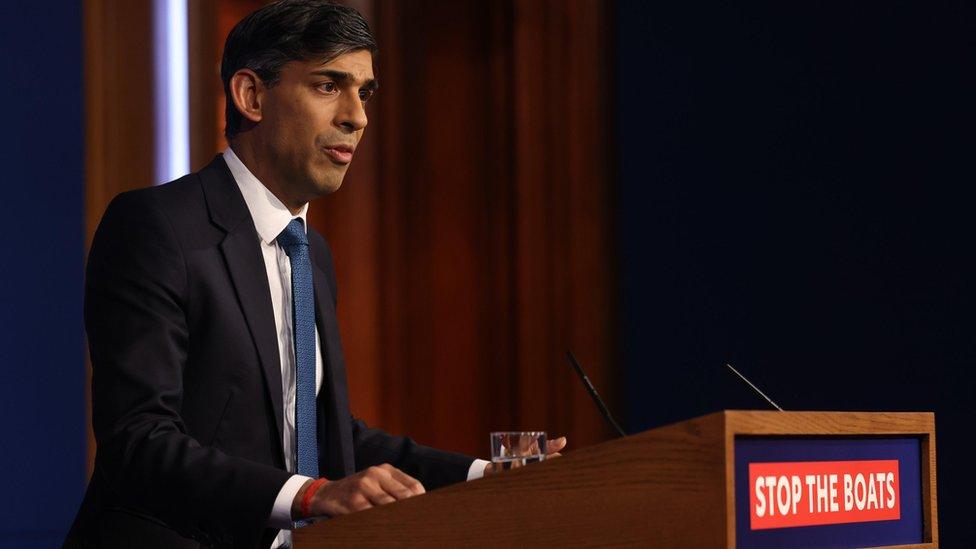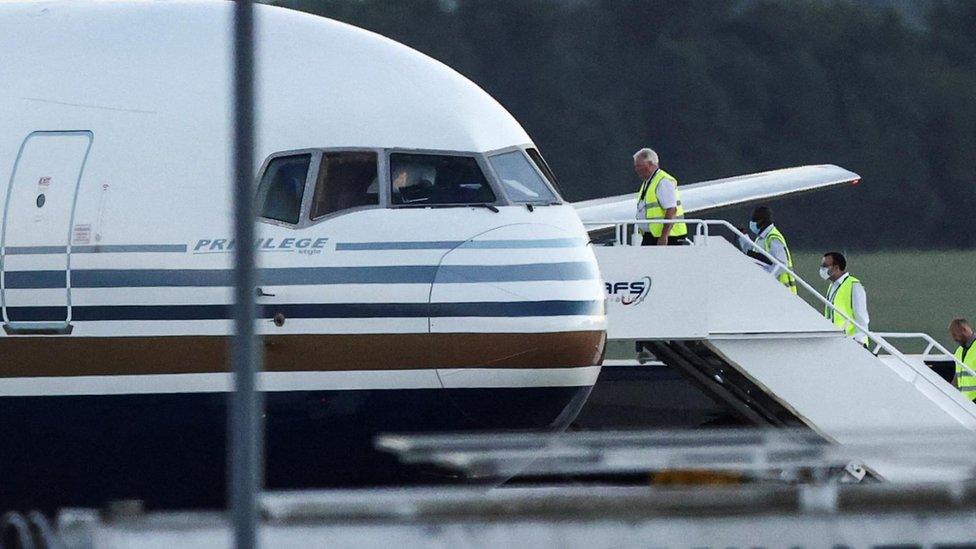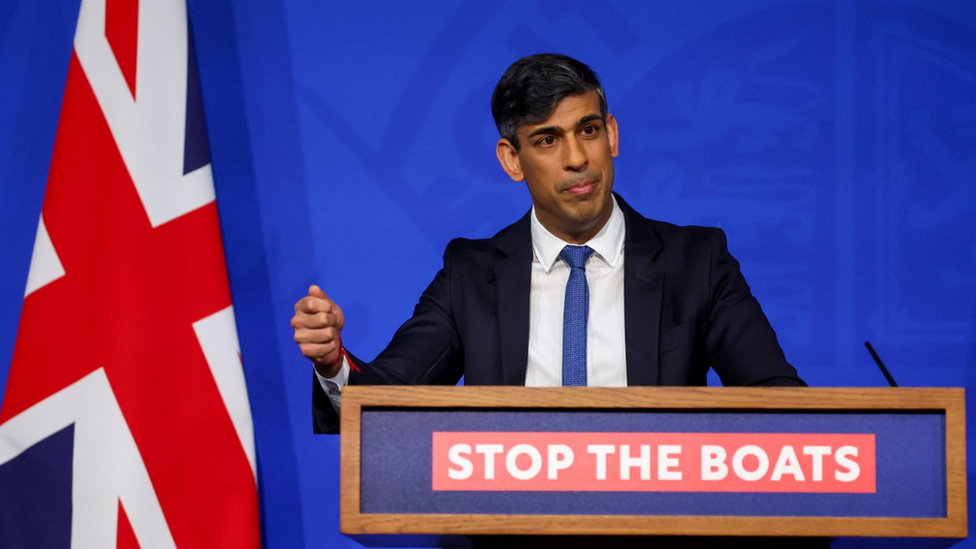Rwanda plan is fundamentally flawed, parliamentary report warns
- Published

A key parliamentary committee says the government's plan to send some asylum seekers to Rwanda is "fundamentally incompatible" with the UK's human rights safeguards.
The Joint Committee on Human Rights said the legislation jeopardised the UK's international reputation.
The bill will be debated in detail by the House of Lords this week and face substantial opposition.
Even if it passes, it is not clear whether flights will ever take off.
Prime Minister Rishi Sunak's controversial legislation, external was approved by MPs last month despite substantial opposition. His own party split over the plan and the then immigration minister quit, declaring it would not work.
Under the scheme, which has cost £290m so far, the UK would block claims for asylum from anyone arriving over the English Channel and instead send them on a one-way trip to Rwanda. Its government has promised to consider their cases for protection.
The UK Supreme Court ruled that Rwanda was not a safe country because it could send victims of abuses, including torture, back to countries they have fled from.
If the legislation is passed by Parliament, British judges will be told to find the country is a safe place without considering the evidence a second time.
Publishing a detailed analysis of the legislation before peers begin three days of intensive debate, the cross-party Joint Committee on Human Rights said the bill would deny almost all asylum seekers the legal right to ask an independent court to assess their case to remain in the UK.
"The principle that individuals cannot be removed from a country to face a real risk of persecution, torture, inhuman or degrading treatment or death is a core principle of international law, to which the UK has committed itself on numerous occasions over the past 70 years," said the report.
While Rwanda had promised in a new treaty with the UK to improve its human rights safeguards, there was no guarantee it would work in practice, said the committee.

Legal challenges meant the first Rwanda flight was cancelled shortly before take-off in June 2022
"The courts remain the most appropriate branch of the state to resolve contested issues of fact," it said. "The question of Rwanda's safety would best be determined not by legislation but by allowing the courts to consider [the evidence]."
Joanna Cherry KC, the SNP MP who chairs the cross-party committee, said the bill was so flawed that it risked "untold damage" to the UK's reputation for upholding human rights.
"Hostility to human rights is at its heart and no amendments can salvage it," she said.
Amendments attacking bill
Peers opposed to the Rwanda bill - which the government's own lawyers have warned is seriously flawed - have proposed 90 amendments.
A Home Office spokesperson said: "We are committed to tackling this major global challenge with bold and innovative solutions, and the Rwanda scheme is doing just that.
"The Bill we have introduced, and the treaty alongside it, are the best way of getting flights off to Rwanda as soon as possible.
"Rwanda is clearly a safe country that cares deeply about supporting refugees. It hosts more than 135,000 asylum seekers and stands ready to relocate people and help them rebuild their lives."
While the prime minister said his plan to "stop the boats" was one of his five key pledges, public documents showed the Home Office was projecting to spend £700m on arrivals by 2030.
Related topics
- Published13 June 2024
